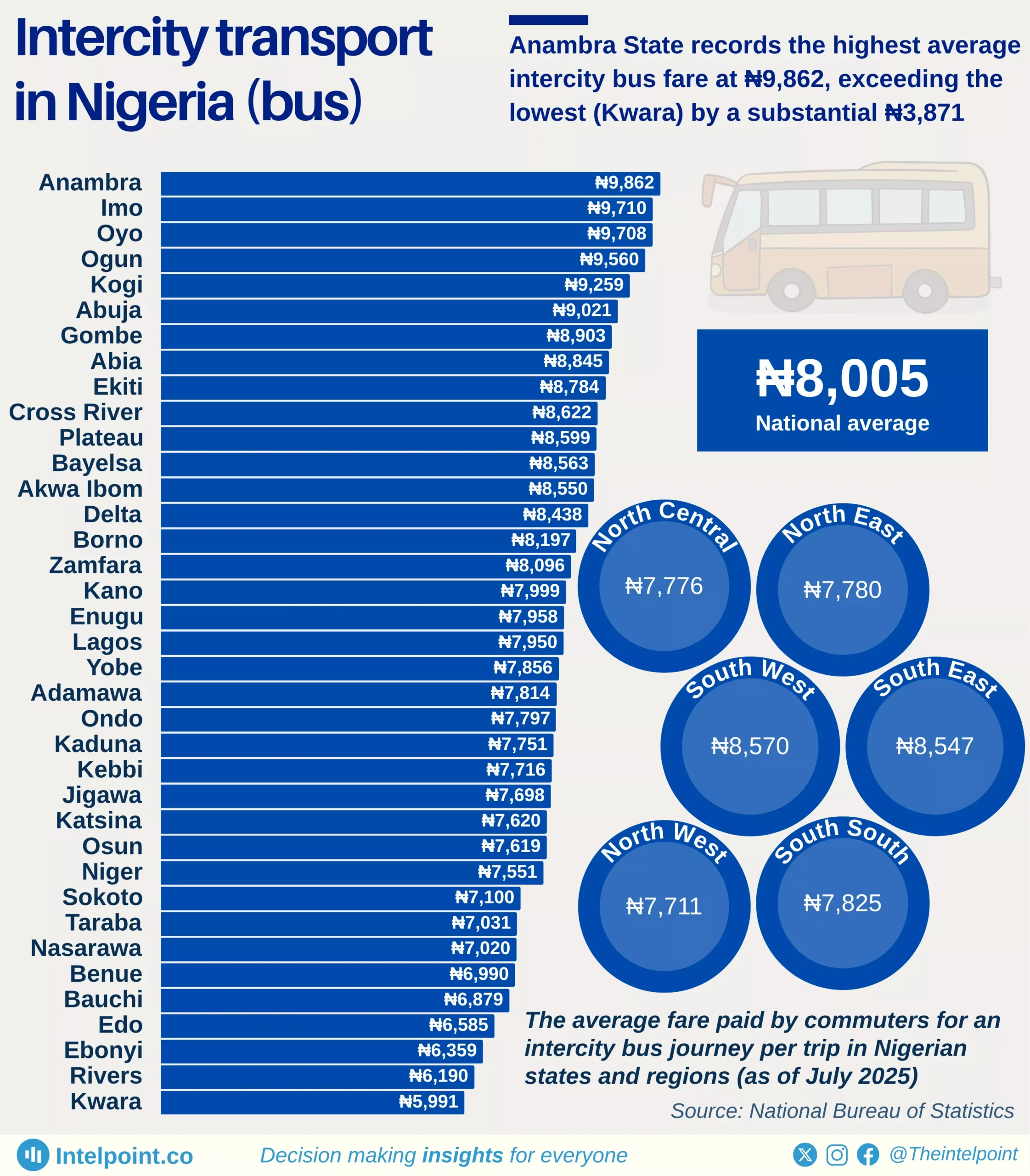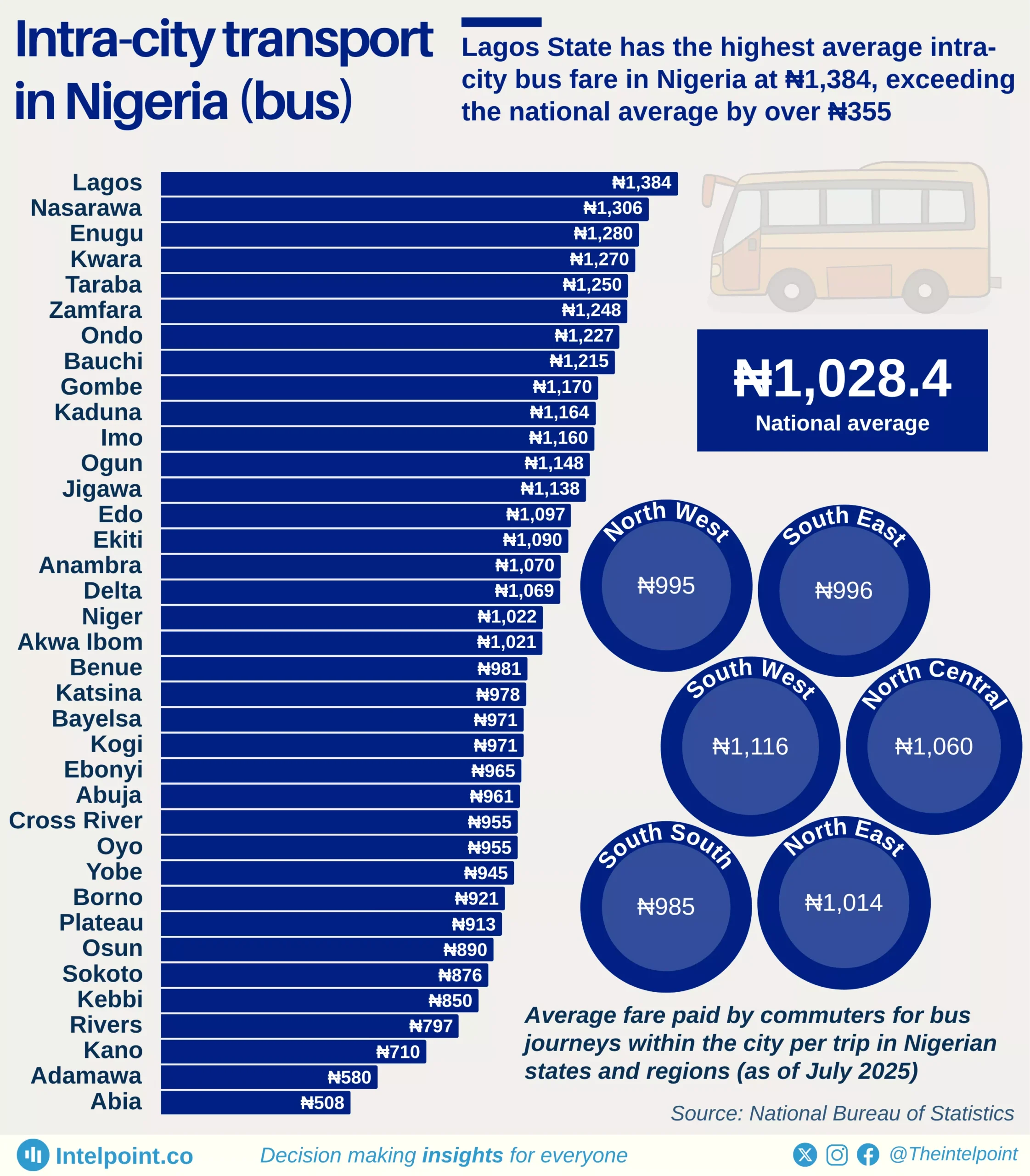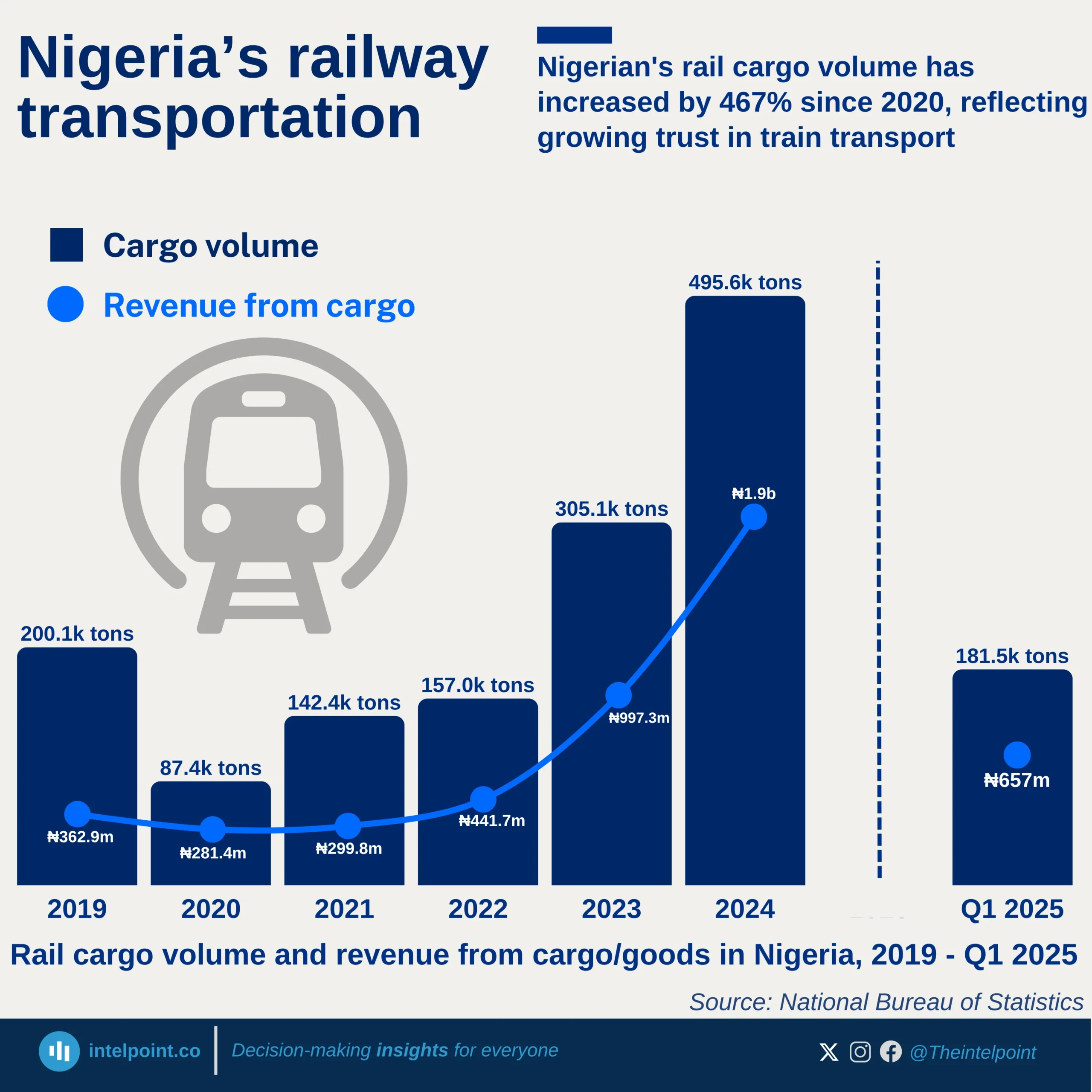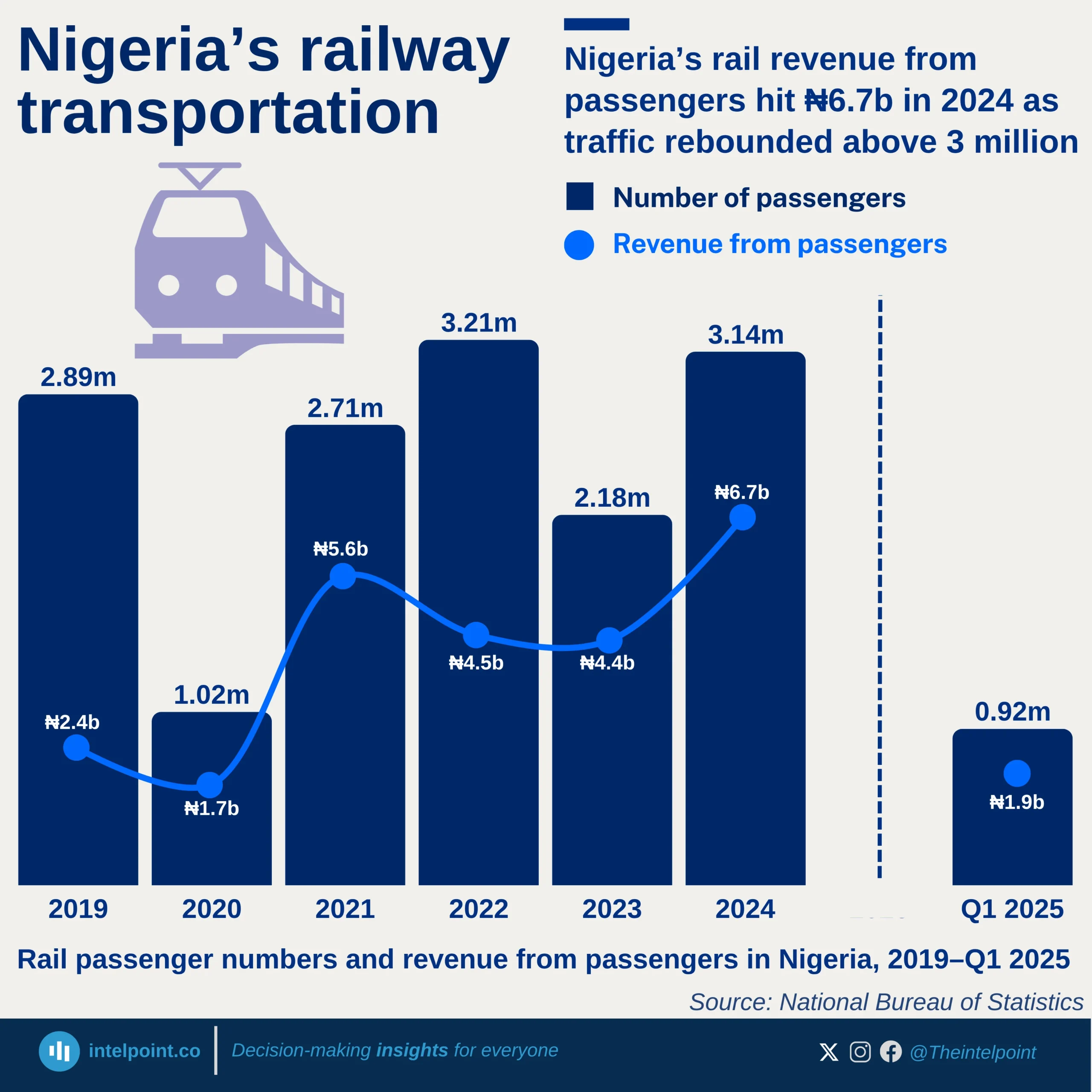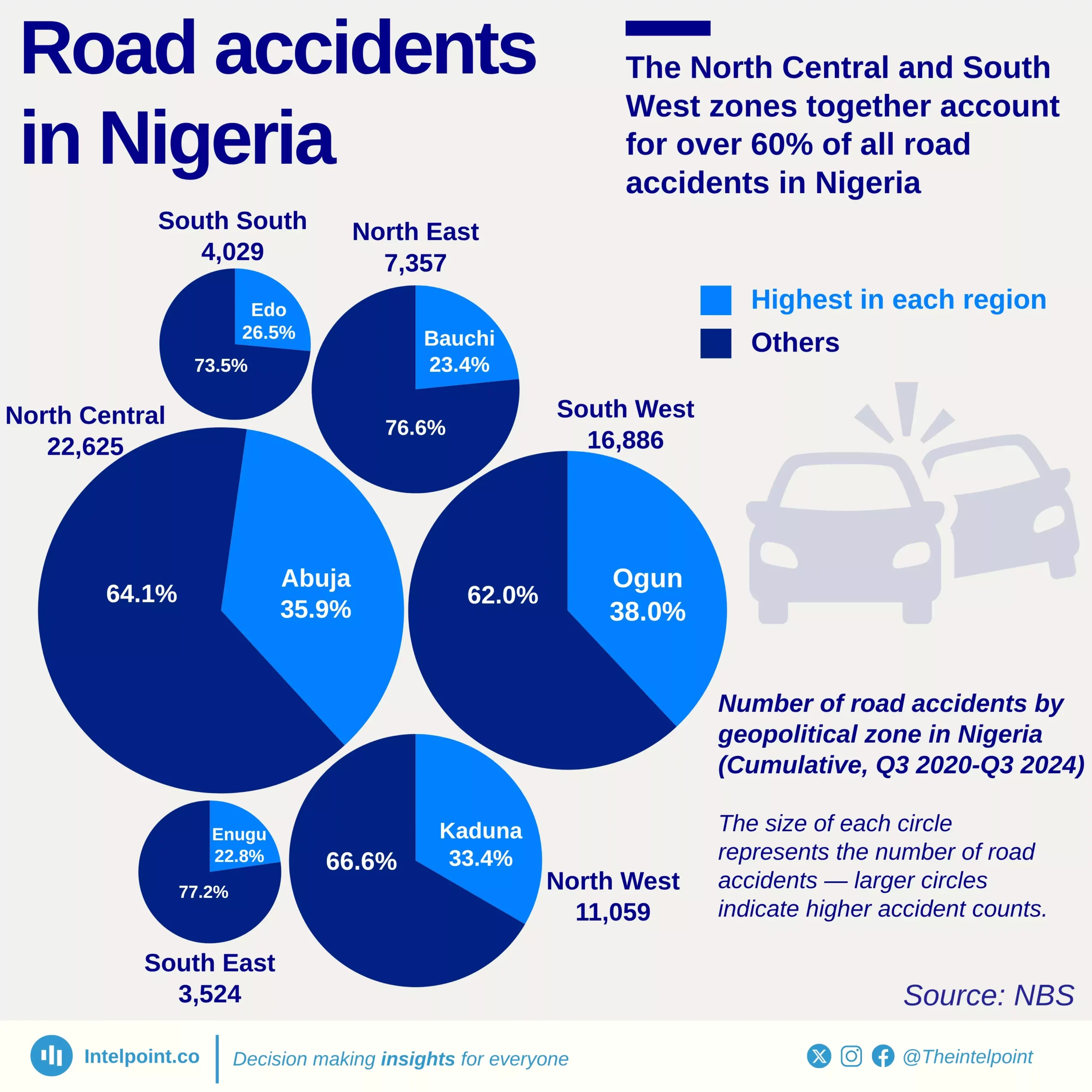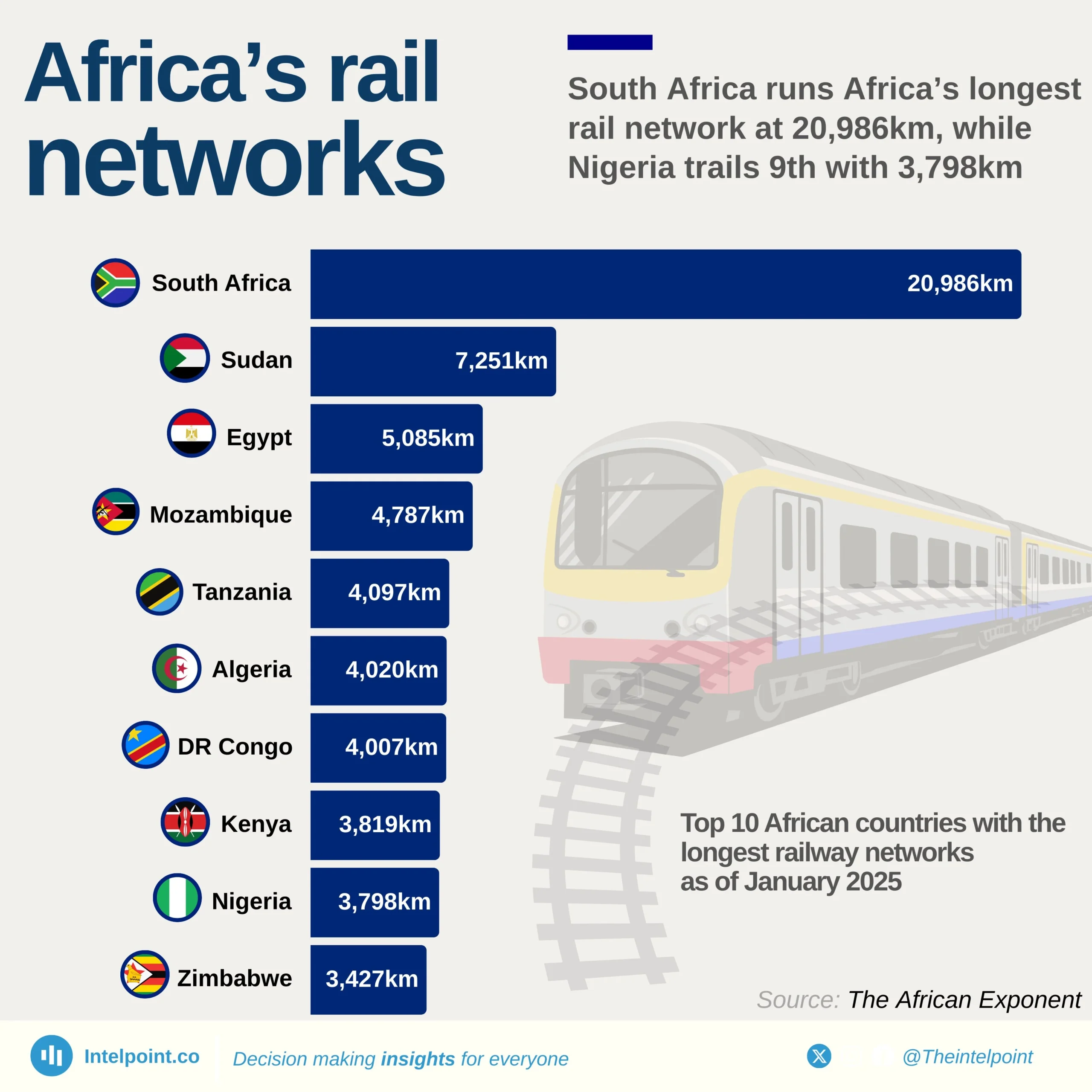Nigeria's railway goods/cargo transport is experiencing a boost, with goods transported increasing from 9.1k tonnes in Q1 2021 to 160.7k tonnes in Q1 2024, representing 1,671% growth. Revenue has surged by 3,114% from ₦19m to ₦607m in the same period. Revenue has increased in eight consecutive quarters since Q2 2022.
